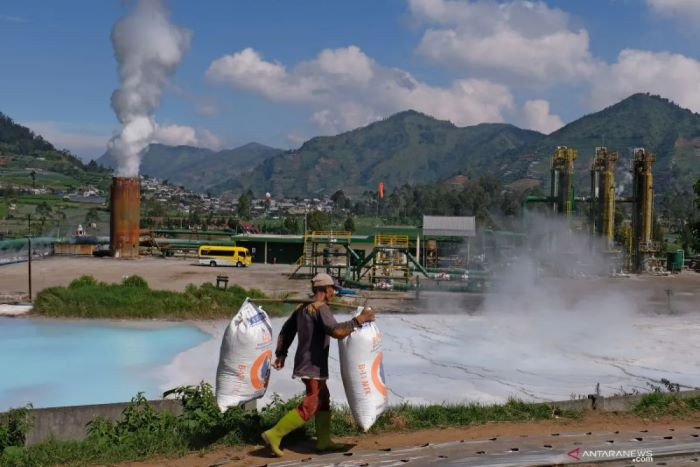Popular Reads
Top Results
Can't find what you're looking for?
View all search resultsPopular Reads
Top Results
Can't find what you're looking for?
View all search resultsTraction for impact investing in Indonesia
With US$1.44 billion in investments through 131 impact deals in 2020-2022, the country accounts for 20 percent of the total impact capital deployed in Southeast Asia.
Change text size
Gift Premium Articles
to Anyone
Impact investing is becoming progressively more important in Indonesia, where it has become part of the means to overcome complex issues related to climate change, equitable development and social welfare, which requires innovation. Referring to the Sustainable Development Goals (SDGs), these problems cannot be solved through political means alone. Innovation and finding the right approach to overcome problems requires attention, seriousness and collaboration from all stakeholders to create a conducive ecosystem.
The basic principle of impact investing is an investment activity that aims to generate returns and maximize its social and environmental impact. Impact investing takes a different approach from traditional investing as it focuses on making investments that also make measurable social and environmental changes, especially on the operational side.
Based on data from the Global Impact Investing Network (GIIN), the world’s market size of impact investing assets under management (AUM) was estimated at US$1.6 quadrillion in 2022. Meanwhile, according to AusAid, Indonesia has the most active market for impact investing in the Southeast Asia region in terms of the number of impact deals. With $1.44 billion investment through 131 impact deals in 2020-2022, the country accounts for 20 percent of the total impact capital deployed in the region. Most of the investments had a ticket size between $1 million-$5 million, of which 60 percent of the deals were below $5 million and 88 percent were led by private impact investors. The Indo-Pacific Impact Fund (IIF) estimated that Indonesia alone needs an estimated $1 trillion of investment to fulfill its SDG gap by 2030.
Hence, with such a huge market size, Indonesia is expected to leverage this potential to upsurge impact investments in the country. This prospective impact funding could have major implications for issues such as poverty alleviation, access to health care, social inequality, environmental protection, sustainable cities and housing, quality education, female inclusion, climate innovation solutions and sustainable micro, small and medium enterprise (MSME) financing. Impact investing is also essential to addressing the challenges of climate change because impact investors play an active role in allocating funds to projects and initiatives focused on reducing carbon emissions, developing renewable energy, conserving forests and adapting to climate change.
However, there are still various serious impacts on the country’s critical sectors on a larger scale in need of work, and solving problems in the right context is key to capitalizing on high-return opportunities. For example, based on the IIF report, Indonesia's agriculture and fishing sectors contributed double-digits to the country’s gross domestic product (GDP), but more than 90 percent of farmers and fishermen are smallholders with low living standards and limited access. This creates low-capacity building, compared with the benefits of which their proxy industries are gaining. The supply chain is highly fragmented, resulting in a heavy reliance on intermediaries for distribution and a low share of intermediaries in the retail market price.



















